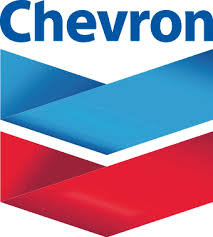Mexico’s Congress, for the very first time in a period of 75 years, approved the comprehensive energy reform bill that gives private sector an opportunity to invest in the gas and oil sectors.
Sources have it that this reform bill had been on Mexican President’s agenda for quite some time now, and it will end the monopoly game that the State had on the oil and gas companies.
The energy reform bill can bring good news for a number of principal oil companies that were just waiting around to invest in this sector of industry. The State of Mexico shares the geology of the neighboring State, Texas, and since Texas’s oil shale of Eagle Ford is one of the most productive in the United States, chances are that gas and oil deposits will extend to Mexico’s south as well. The Energy Information Administration released its report recently, according to which Mexico could have natural gas of around 545 trillion cubic feet in its shale. Moreover, the estimates are that much of the natural gas is trapped in the northern part of the State as well as the Burgos Basin.
The gulf of the State of Mexico will also be a potential site for the principal oil companies as predictions are that it contains large amounts of natural gas and oil reserves. A number of major oil companies including Royal Dutch Shell plc (NYSE:RDS.A), BP (NYSE:BP), Chevron Corporation (NYSE:CVX) and Statoil ASA (NYSE:STO) already operate on the gulf lands near the waters of Mexico, widely known as Perdido Fold Belt.
The offshore Mexican reserves can hold as much as 10-30 billion barrel units of oil; hence, chances are that numerous companies will compete over oil investment in the State of Mexico as many oil companies are turning to offshore extraction for they can use huge hydraulic pressures at the gulf sites.
The Mexican oil reserves, both offshore and onshore, are located just across the U.S. territory border, and so, many companies will have to take just a small leap in order to expand their operations in the respective State.
As for Mexico, the State is determined to gather foreign investments since Pemex cannot expand its onshore operations due to the level of expertise that is available to it. Moreover, the company does not have enough capital to buy offshore drilling equipments. So, big international oil companies can help the State of Mexico on both fronts. It is important to note here that Mexico’s oil production recently hit its lowest; first time in a history of 24 years.
International oil companies want to operate in regions with minimal risks; Mexico, compared to other territories, is not risk free as the State faces severe drug violence. For instance, at times, the region of Tamaulipas in the east of the State of Mexico resembles a war zone, and the Mexican military has to accompany some of the oil laborers to and from the work sites. Such levels of violence can prevent international investment in the region of Mexico.
However, it is difficult to assume that international companies will stay away from Mexico for a long time; chances are that Chevron Corporation (NYSE:CVX) and BP (NYSE:BP) will jump in the business as soon as they can.





Pingback: 2embargo
Pingback: 3redoubtable
Pingback: blote borsten
Pingback: Electronic Medical Record
Pingback: ทรรศนะบอลวันนี้
Pingback: vendite online di ossicodone 80mg a basso prezzo senza script
Pingback: APEX esp
Pingback: จำหน่ายอะไหล่อุตสาหกรรม
Pingback: PGSLOT DEMO เล่นฟรี24h
Pingback: Nexus Market Exit Scam
Pingback: Sponsor NFTs
Pingback: free chat
Pingback: ของพรีเมี่ยม
Pingback: ทัวร์ยุโรป
Pingback: Cannabis
Pingback: โคมไฟ
Pingback: Brian
Pingback: Wild Ape
Pingback: greencruzer.com
Pingback: click here
Pingback: จัดงานศพครบวงจร
Pingback: boylesports app
Pingback: Cheetah X
Pingback: SUPERSLOTMAX
Pingback: ทางเข้าแทงบอล UFA356
Pingback: cigar retailer
Pingback: บริการส่ง SMS